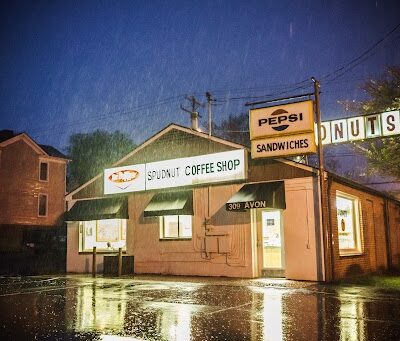Many of us pick up boxes of vegetables from our CSA shares every week, but how many pick up bottles of milk? If CSAs are all the rage, then herd share operations, giving shareholders a cut of weekly fresh milk production, are a whole different animal. A rising tide of market demand for raw milk has prompted an outgrowth of new programs across the state, from five in 2000 to more than 30 today.
As the “Milk Mamma” of Majesty Farms, Kathryn Russell has offered the only herd share program in the Charlottesville area since 1999, acting as an agister, or pasturer and caretaker of livestock, maintaining and milking cows and goats. Shareholders purchase an interest in an animal and pay for its upkeep; Russell and company do the rest, providing a weekly gallon of cow’s milk or three quarts of goat’s milk per share, all guaranteed less than 36 hours out of the udder upon pickup.
|
Kathryn Russell might milk and take care of the cows, but technically the shareholders in Majesty Farm are the animals’ owners. The arrangement makes it legal for shareholders to obtain raw milk. |
Here in Virginia, courts have ruled it illegal to sell nonhomogenized milk, so herd shares may be the only way to get your hands on it. When you’re a shareholder in the farm’s milking operations, drinking milk from your own cow is a perfectly legal practice, with health perks to boot: Raw milk contains enzymes, usually denatured by the heat of homogenization, which aid in the digestion of milk sugar. Some lactose-intolerant shareholders even claim that these enzymes, making raw milk more easily digestible than homogenized milk, have allowed them to drink milk for the first time in years.
Attracted by these health benefits, many of Russell’s shareholders have been coming back for almost a decade. Upon moving to Albemarle County nine years ago, Bill McCaskill came to her to learn more about the milking process, but stayed for the guaranteed quality of both the product and Russell’s farming practices. “We love the fact that their cows are not standing in manure up to their knees as in many factory farms,” he says. The result? “Much more nutritious milk, as well as healthier cattle.”
At $85 a share plus a $32 monthly boarding fee, the expense comes to more than $8 for each weekly gallon—substantially more than your average grocery store jug. But purchasing a herd share, Kathryn says, just isn’t the same as running in to Kroger on your way home from work. Much like CSAs, herd shares are an investment in the local economy, a fact which appeals to many shareholders like McCaskill, who aim to encourage the development of local agriculture and discourage big agribusiness.
“You’re supporting a local farmer and helping them capitalize expenses,” Russell says. “It’s an investment in the local community.”






